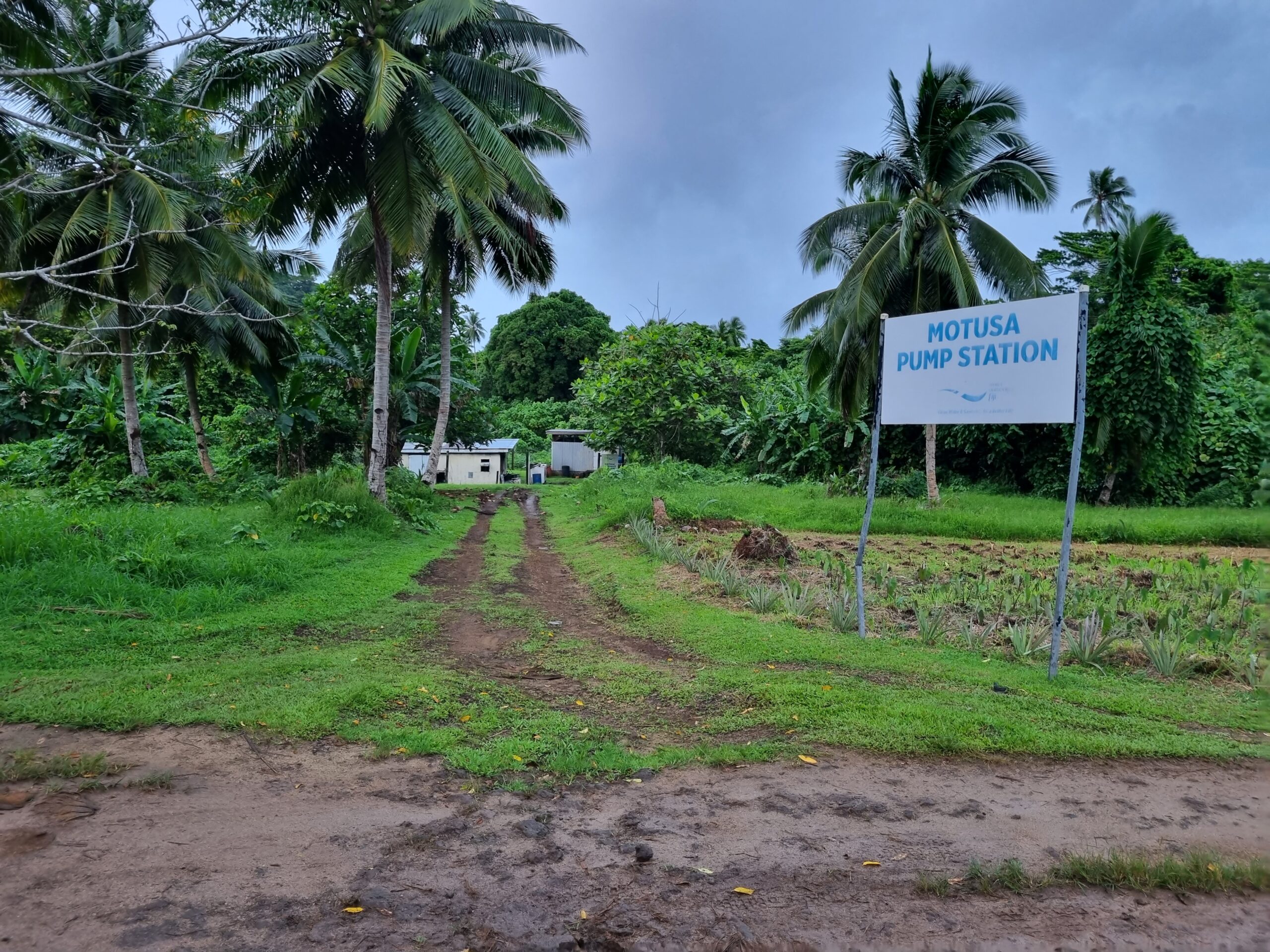Strengthening water access and resilience with hybrid energy for Fiji’s maritime islands
Funding round: Quickstart
Country: Fiji
Sector: Water
This project aims to improve the resilience, sustainability and affordability of water services for around 4,900 people living on Fiji’s remote maritime islands of Lakeba, Rotuma, and Vanuabalavu.
By transitioning from diesel-only pumping to solar-hybrid and water tank systems, communities will gain greater water security and more reliable access. This will reduce dependence of costly and unreliable imported fuel and cutting thousands of kilograms of CO2 emissions each year.
Delivered in partnership between the Global Green Growth Institute (GGGI), the Water Authority of Fiji and the Department of Water and Sewerage, this project will serve as a model for scaling renewable solutions across the country.
$2,060,605
$2,060,605
DFAT contribution
$952,334
$952,334
Partner contribution
$3,012,939
$3,012,939
Total funding
Partner

The Global Green Growth Institute Pacific team works in Fiji, Kiribati, Vanuatu, Tonga and Papua New Guinea to create a climate-resilient world through green sustainable growth.

The Water Authority of Fiji is a Commercial Statutory Authority (CSA) and is the water and wastewater management service providers in Fiji.

The Fiji Department of Water & Sewerage (DWS) is responsible for ensuring a sustainable water and sewerage sector in Fiji through the development of innovative policies, efficient service delivery and rigorous compliance monitoring.
About this project

The Global Green Growth Institute (GGGI), in partnership with the Water Authority of Fiji, Department of Water and Sewerage and the Australian Government, is delivering a transformative project to improve access to safe, reliable and affordable drinking water for remote maritime communities. The project will install solar-powered water pumping systems in seven sites across the outer islands of Lakeba, Rotuma and Vanuabalavu.
Each site will benefit from solar-hybrid systems designed to reduce dependence on costly, emissions-intensive diesel generators while improving resilience to extreme weather events. The systems will also include water storage and remote monitoring capabilities, enabling improved service delivery and more sustainable management of water resources.
In addition to infrastructure upgrades, the partnership will strengthen institutional and community capacity. Training and governance support will be provided to Water Authority of Fiji staff and local communities, alongside targeted inclusion efforts to ensure women, people with disabilities and other vulnerable groups actively participate in and benefit from the project.
Context
Fiji’s maritime communities face persistent water insecurity due to ageing infrastructure, high fuel costs and limited energy access. While over 98% of urban populations have access to safe drinking water, this figure drops to just 58% in rural areas. For communities on islands like Lakeba, Rotuma and Vanuabalavu, diesel-powered water pumps are costly to run, prone to breakdowns and vulnerable to supply chain disruptions, especially during cyclones.
These challenges are more than technical: they impact health, livelihoods and equity. When diesel systems fail, communities are often forced to collect unsafe water, increasing the risk of waterborne diseases such as leptospirosis and typhoid. Women and children, who typically bear the burden of water collection, are particularly affected.
By integrating solar energy into critical water infrastructure, this project addresses the interconnected challenges of energy insecurity, water access and climate vulnerability. It aligns with Fiji’s National Development Plan, Low Emissions Development Strategy and National Adaptation Plan while supporting the REnew Pacific mission to deliver clean energy and climate-resilient services to frontline communities.
